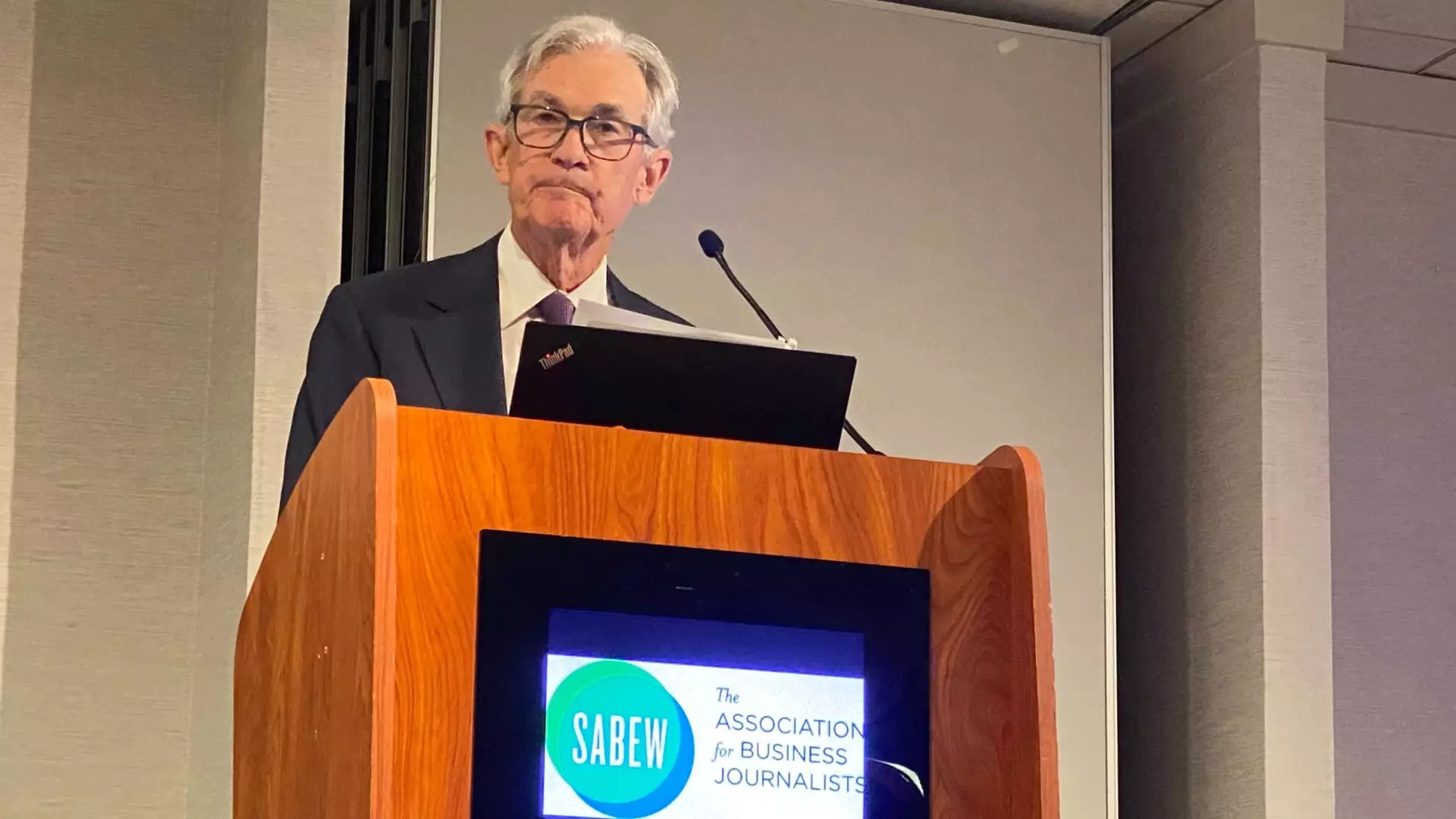As Federal Reserve Chair Jerome Powell steps onto the stage at the Economic Club of Chicago, the gravity of his words weighs heavily on market participants and everyday citizens alike. Scheduled to speak at 1:30 p.m. ET, this event comes at a critical juncture in U.S. economic policy, where growth and inflation sit precariously in a balance dictated by government actions and sentiments. With President Donald Trump’s tariffs looming ominously over the landscape, Powell’s remarks are expected to reflect an increasingly complex economic scenario.
The Federal Reserve’s upcoming Federal Open Market Committee (FOMC) meeting on May 6-7 brings anticipation and trepidation alike; while a majority of observers expect a continuation of current interest rates between 4.25% and 4.50%, there are whispers of change. The truth is, uncertainty is breeding skepticism among investors. Market reactions are often driven more by sentiment than by economic fundamentals, meaning Powell’s speeches have the potential to sway fortunes in a matter of moments.
The Effect of Tariffs on Economic Growth
Powell’s earlier remarks indicated that the tariffs imposed by the current administration have significant implications for economic growth and inflation. His observation that Trump’s policies could inflate costs and stifle growth highlights the Fed’s role in navigating a treacherous economic environment. The central bank finds itself caught in the crossfire: on one hand, it needs to combat inflation, while on the other, it is tasked with fostering economic stability. This dual mandate has never been more challenging.
The politically charged atmosphere surrounding tariffs unveils a harsh reality—the decisions made in the Oval Office have far-reaching consequences that ripple through the economy. The Fed, while designed to operate independently, inevitably feels the pressure of political realities. What Powell must communicate is the urgency of sound economic policy that transcends partisan divides.
Navigating the Unconventional Economic Terrain
Our current economic landscape is marked by unprecedented challenges, from supply chain disruptions to rising oil prices. As Powell outlines his vision for the Fed’s strategic approach, it must incorporate an understanding of these variables. An economy straying from traditional benchmarks indicates we are in uncharted territory, where historical policies may no longer apply.
It is imperative for Powell to advocate for a credible, flexible monetary policy capable of adapting to the dynamism of today’s economy. The capacity for the Fed to remain responsive while maintaining a clear rhetorical stance is fundamental to public confidence in economic leadership. The trust deficit derived from political gamesmanship undermines the Fed’s credibility and makes Powell’s role even more pivotal.
Shaping Future Adaptability
With inflation pressures seemingly on the rise, Powell has a nuanced task ahead. His responsibility extends beyond merely keeping rates stable; he must arm himself with a coherent narrative to reinforce the Fed’s position to stakeholders. Investors, policymakers, and ordinary citizens alike are looking for guidance—an economic compass pointing toward not just growth, but equitable and sustainable prosperity.
The reality is that misguided tariffs can have profound negative impacts on the economy. Powell must urgently articulate how the Fed plans to not only weather the storm but also foster an environment conducive to long-term growth and stability. The consequences of inaction or unclear direction could lead to even greater economic despair, and that is a scenario none can afford to see unfold.

